Are you eager to visit Europe and not part of the EU’s recommended traveler list? Worry not, your answer to visiting Europe in 2020 is simple. Go to Croatia.
As of July 1, 2020, Croatia is open to tourists from every country. Yes you read it right, anyone from any country in the world no matter what your country’s COVID situation is, can travel freely to Croatia. I absolutely loved Croatia and came here as part of a trip to see the entire Balkans region. For the sake of this post, I won’t talk about the tourism itself but just what these new rules mean.
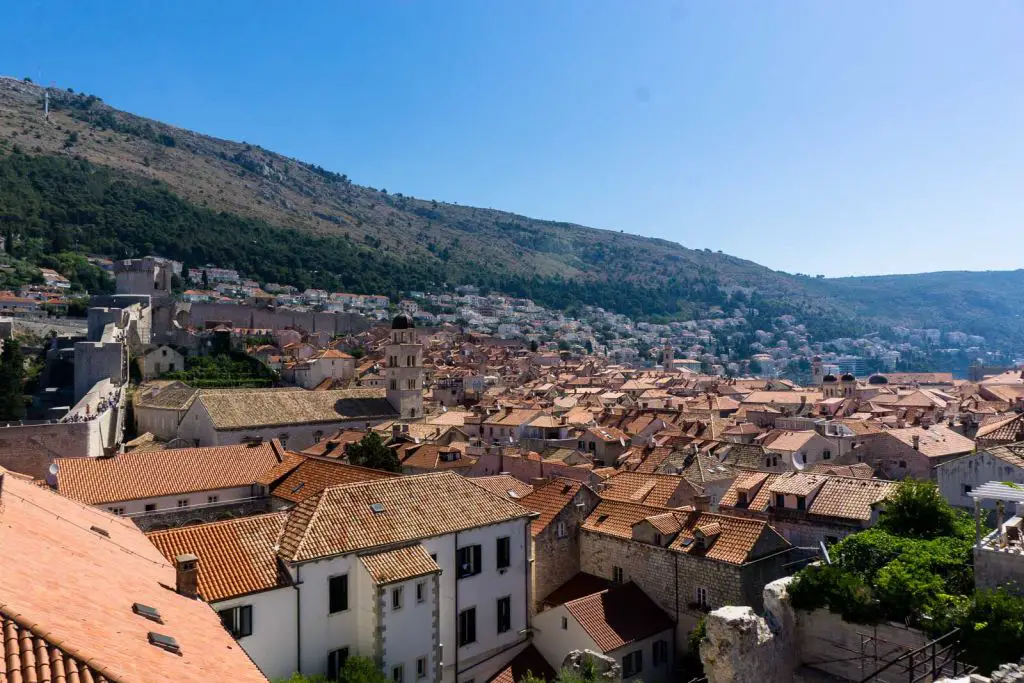
Didn’t the EU just ban most countries from entering?
Admittedly, I was quite shocked when I saw this. Everyone’s aware of how the EU recommended Americans to be barred from traveling to the EU because of the COVID outbreak. However, this is actually just a recommendation. A guideline of sorts. It’s not a requirement forced upon any country. The EU issues guidelines and the countries that are part of the EU can either follow it or not.
Croatia has bucked the trend that every other EU country has largely accepted and is now opening the borders to everyone.
Croatia was never hard hit from the coronavirus. They closed the borders early and had a robust lockdown.
As of mid July 2020, there’s been around 3,500 confirmed cases and 115 deaths. With a population of around 4m people, that’s about 800 cases per million. To put it in perspective, the US which has the highest amount of cases at over 3m, has around 10,000 cases per million.
Daily cases in Croatia as of July are around 50-100 cases a day which is quite high considering their population. Of course, this is subject to change for the better or worse at any point.
What are the requirements to enter Croatia
So now that you know you can visit Croatia, what are the requirements to do so?
The Croatian Government has broken down the world based on two lists. One list which consists of 10 countries will be able to enter with no pre-checks. This list is the following countries.
- Czech Republic
- Hungary
- Austria
- Estonia
- Latvia
- Lithuania
- Poland
- Slovenia
- Germany
- Slovakia
Every other country, whether it’s part of the EU or not part of the EU will need to show valid proof of a hotel stay or some sort of valid travel based reservation. This is vague no doubt, because a “travel based reservation” is literally anything and is about the easiest criteria you could possibly meet to entire a country. It sort of feels like Croatia has all but forgotten there is a pandemic happening in 2020.
What about COVID-19 testing requirements?
While most countries are reopening their borders with requirements of testing either upon arrival or before departure, Croatia has made no mention of any testing requirements. Yes, you can enter Croatia with no testing and no quarantine required. I had to really read up on this because I found it hard to believe. Iceland was making all visitors including EU citizens take tests upon arrival and Croatia is not requiring tests for anyone in the world.
In addition, there is no waiting periods involved. You will not have to take a test before or upon arrival and there is no requirement to quarantine upon arrival.
What about Contact Tracing in Croatia?
You will need to register before entering. This applies to every country, EU or not. Almost every country I’ve seen is implementing some sort of contact tracing regime and Croatia is no different.
You will need to fill out the form from EnterCroatia before arrival. The form is straight forward and doesn’t require anything special.
What about Anti-COVID measures?
From what I’ve gathered, people are recommended to social distance and wear masks but this is not required. The Government is “asking” locals and tourists to do so which doesn’t seem like it’s mandated to me. This could of course change at any point in the future.
After traveling to Italy numerous times during the times of Coronavirus, they absolutely required masks, sometimes even to walk around in certain public spaces.
What’s open in Croatia?
Pretty much everything. All restaurants, tourist attractions, zoos, ferries, public transportation, hotels, etc. are open for business. In fact, most of these things have been open in Croatia since early May.
How Do I get to Croatia?
There are not many trans-atlantic flights from the USA direct to Croatia. American flies direct from Philadelphia to Dubrovnik in certain months but other than that I can’t find any other direct flights.
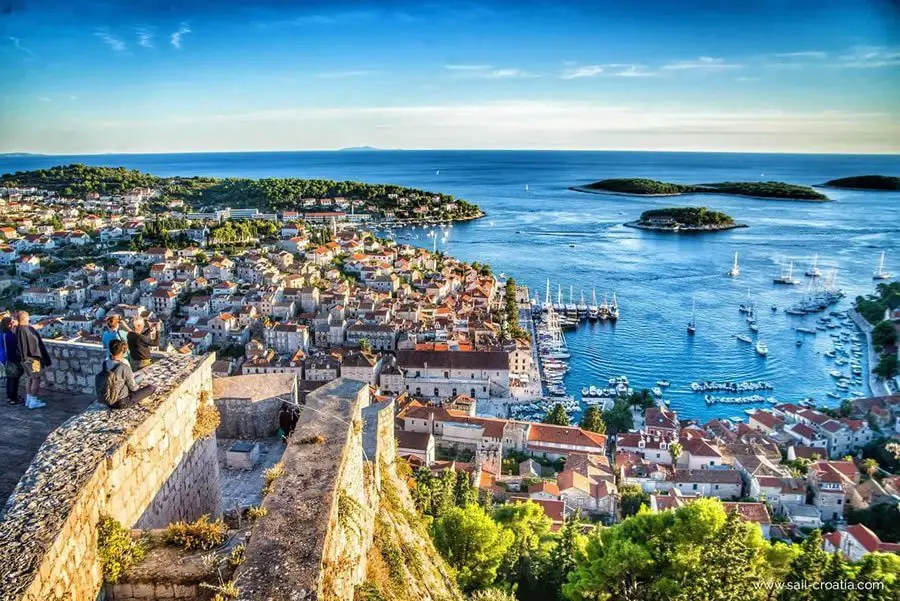
It’s likely you will have to transit through an airport in the EU like Frankfurt Airport or Amsterdam. As per EU regulations, you are allowed to transit at airports in the EU as long as you do not enter.
Since Croatia is not part of the Schengen, this means you do not have to clear immigration if you have a layover in say Frankfurt which means you do not have to worry about being turned away from your flight.
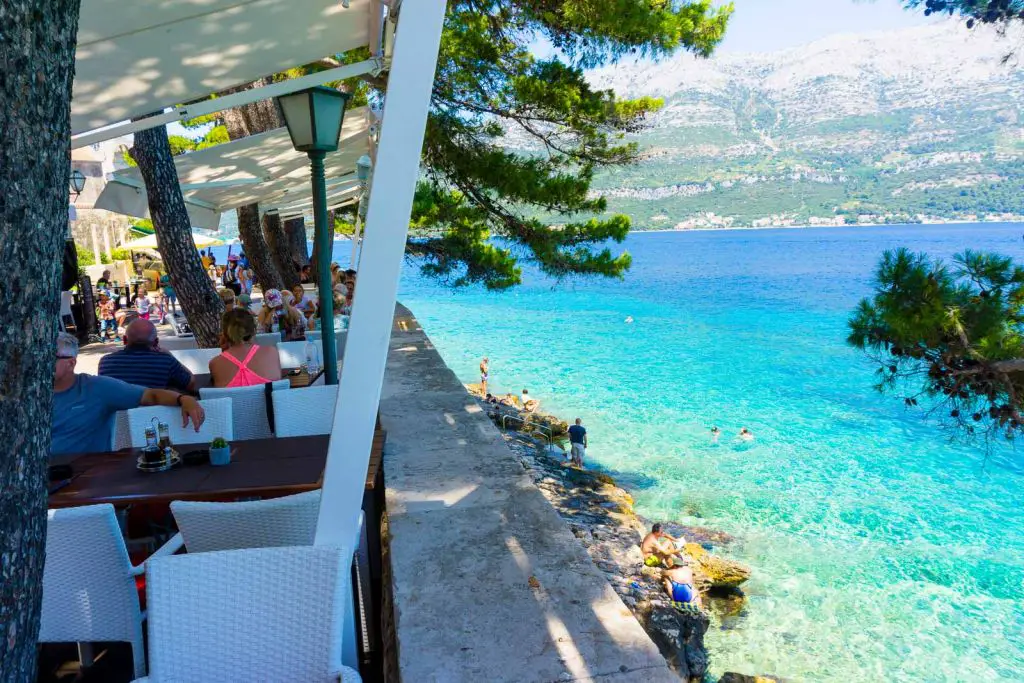
I’ve read in some forums that travelers from the US on their way to Croatia have been turned away by the gate agents because they simply did not understand the travel rules currently. However, just show them that Croatia has indeed opened the borders for everyone and you should be let on.
Can I travel to other countries in the EU after Croatia?
This is the million euro question. Since Croatia is part of the European Union, does this mean you can fly into Croatia, see the sights and continue on to another EU country like Slovenia with its fairy tale Lake Bled or Italy which has everything from towering mountains in the Dolomites to idyllic beaches in Puglia?

Firstly, Croatia is part of the European Union as of 2013, but they are not part of the Schengen. This is the freedom of travel agreement between 26 countries that allow you to travel freely between them without any passport checks. This means if you enter Croatia from Germany or vice versa, you’ll need to show your passport and clear immigration to enter.
So if you are leaving Croatia and want to fly into Italy, will you be allowed in? There is no clear answer from what I’ve researched. The EU rule on travel bans is based on residency, not citizenship. So an American citizen residing lawfully in Germany with an EU Blue Card or something similar can travel with no issues around the EU right now. However, someone who just lives in say Utah with no ties to the European Union is not allowed in. This makes sense because the Coronavirus situation in the US is abhorrent at the moment and it’s not surprising the European Union doesn’t want to take any risks.

However, if you’re an American that’s already traveled in Croatia for two weeks (which is allowed now), does it make sense for border officials to refuse entry to you because you have no EU residency, but at the same time accept entry from Croatian nationals since they’re part of the EU? On the one hand, border officials in say Italy will follow the EU guidance, but on the other hand, you’ve already been in Croatia for weeks mingling with everyone else. If the Italian border officials are worried about American visitors bringing in COVID, then they should ban Croatian visitors too which won’t happen because that is against the nature of the EU.
It’s a messy situation and a complication that was bound to happen. For now, I’d probably be more conservative and say you will not be allowed in even from Croatia.
What do I think of all this?
Very very surprised is just the start of it. I had just assumed Croatia would be following the guidelines of the EU and every other country. They even forced their neighboring Balkan brothers and sisters from countries like Bosnia, Serbia, and Montenegro the week before July 1. Now from July 1 on, it seems like Croatia has just said Covid be damned, let’s open everything up.
To go from letting almost no one in to letting the world in within a few days seems very aggressive and frankly a bit reckless to me. There’s a reason the EU has taken a very tempered approach to opening its borders because they want to see what will happen to the epidemiology of the disease as they slowly open things up.
Things are not meant to stay closed forever which is common sense, but a gradual approach is necessary to combat a virus that no one still understands.
Tourism is a huge part of Croatia’s GDP
Croatia has seen a very strong growth in GDP in recent years and is one of the standouts of the EU. Tourism is one of the biggest contributors of GDP at roughly 20%. That is an absolute monstrous number. Even countries like Spain or Italy which are tourist meccas do not have this type of reliance on tourism.
It’s not surprising to me that Croatia wants to reopen to the world as soon as possible because without tourism, and ample amounts of tourism at that, a deep recession is all but guaranteed.
However, I still think it’s way too much way too fast. Inviting everyone from the world to come with no tests and no quarantines is a COVID petri-dish. While I absolutely loved traveling around Croatia and exploring the impossibly picturesque old town of Dubrovnik, I’m not so keen for the shoulder to shoulder swarms of tourists that came along with it.
Nevertheless, tourism will still be down regardless of how open Croatia wants to be. There will be no cruising for this summer, and the majority of people won’t be flying within Europe let along from another continent. I still think this summer is a great time to travel around Europe but I think there are too many other countries to visit and will leave Croatia off the list.



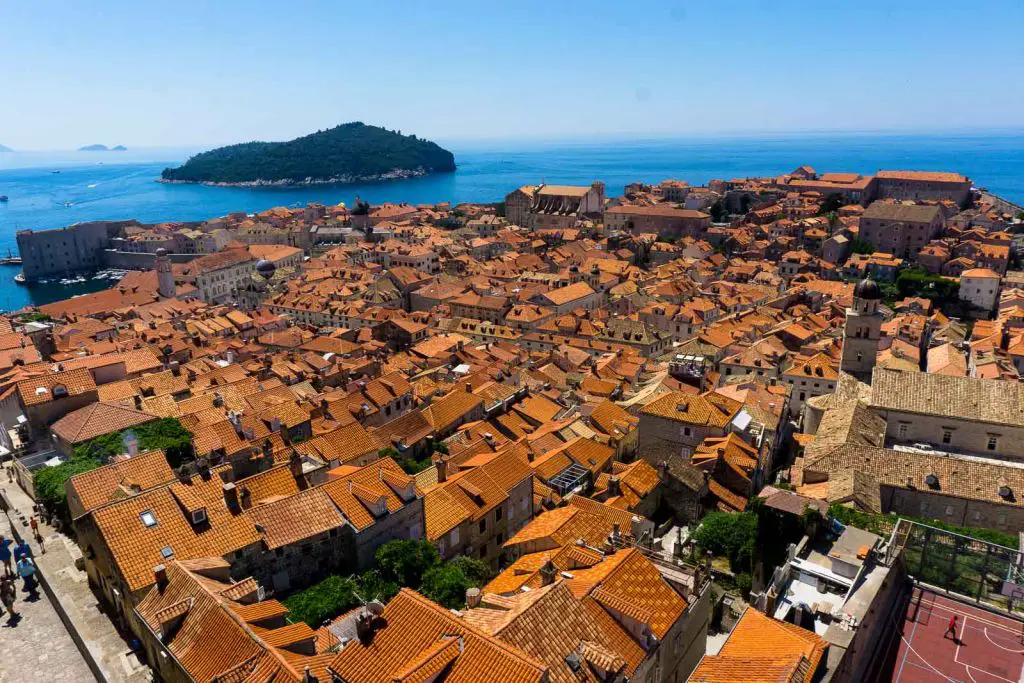
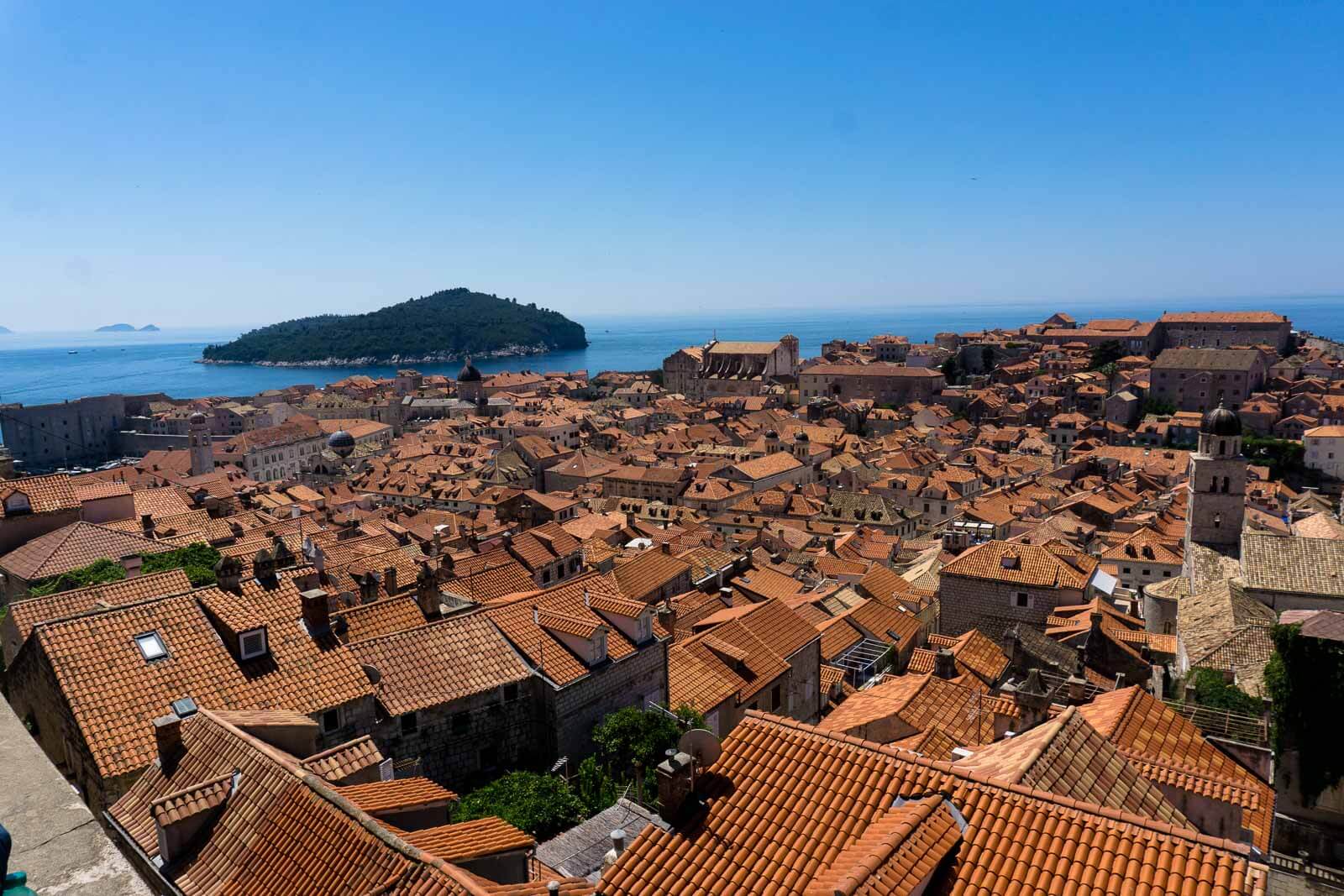
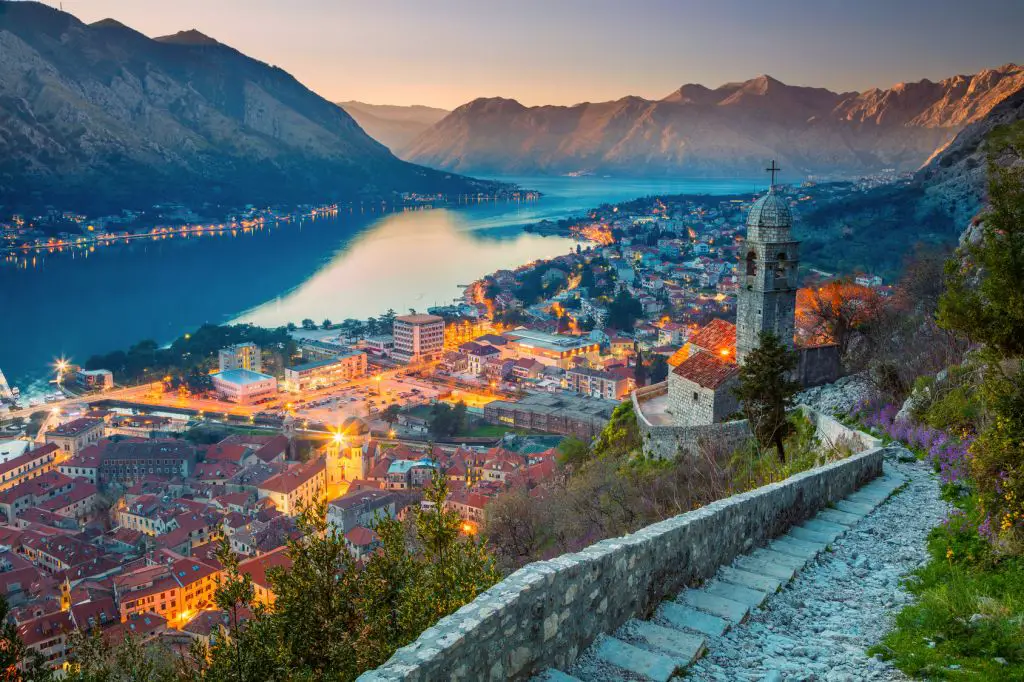

Great Post! I got too much Information & guidance from this post to Europe. I am glad to read this awesome post. Thanks for sharing such a helpful Post.